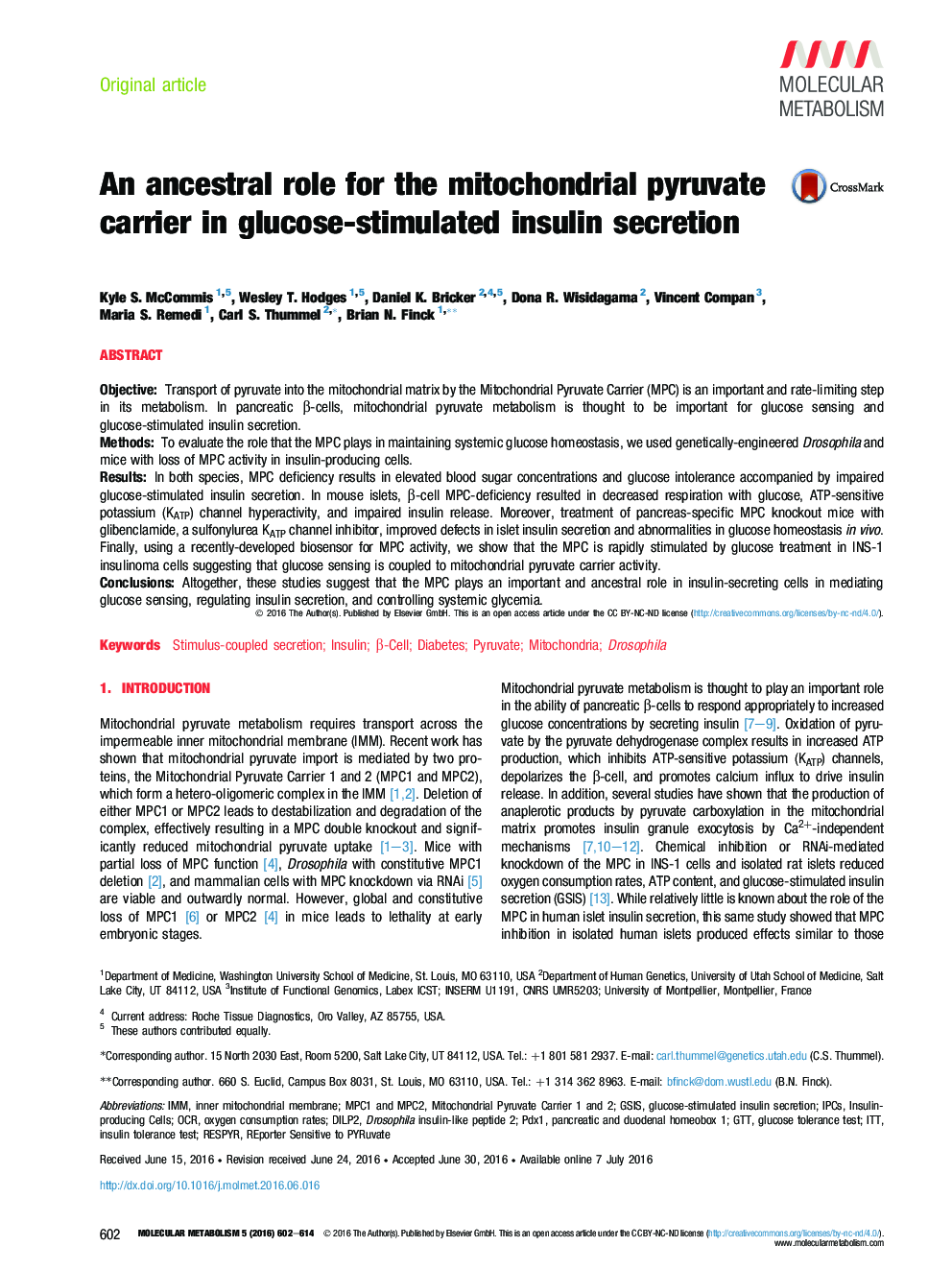| Article ID | Journal | Published Year | Pages | File Type |
|---|---|---|---|---|
| 3001527 | Molecular Metabolism | 2016 | 13 Pages |
•Loss of MPC activity in Drosophila leads to hyperglycemia.•Glucose-stimulated insulin secretion is impaired in Drosophila lacking MPC.•β-cell-specific MPC deletion in mice also results in impaired insulin secretion.•The MPC may be a sensor for glucose concentration in β-cells and couple pyruvate production to insulin secretion.
ObjectiveTransport of pyruvate into the mitochondrial matrix by the Mitochondrial Pyruvate Carrier (MPC) is an important and rate-limiting step in its metabolism. In pancreatic β-cells, mitochondrial pyruvate metabolism is thought to be important for glucose sensing and glucose-stimulated insulin secretion.MethodsTo evaluate the role that the MPC plays in maintaining systemic glucose homeostasis, we used genetically-engineered Drosophila and mice with loss of MPC activity in insulin-producing cells.ResultsIn both species, MPC deficiency results in elevated blood sugar concentrations and glucose intolerance accompanied by impaired glucose-stimulated insulin secretion. In mouse islets, β-cell MPC-deficiency resulted in decreased respiration with glucose, ATP-sensitive potassium (KATP) channel hyperactivity, and impaired insulin release. Moreover, treatment of pancreas-specific MPC knockout mice with glibenclamide, a sulfonylurea KATP channel inhibitor, improved defects in islet insulin secretion and abnormalities in glucose homeostasis in vivo. Finally, using a recently-developed biosensor for MPC activity, we show that the MPC is rapidly stimulated by glucose treatment in INS-1 insulinoma cells suggesting that glucose sensing is coupled to mitochondrial pyruvate carrier activity.ConclusionsAltogether, these studies suggest that the MPC plays an important and ancestral role in insulin-secreting cells in mediating glucose sensing, regulating insulin secretion, and controlling systemic glycemia.
